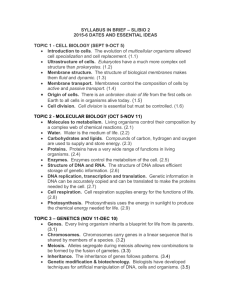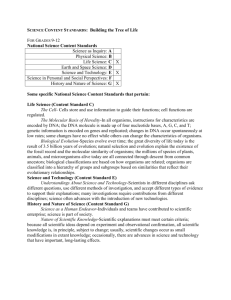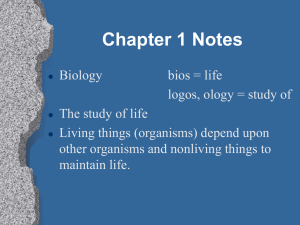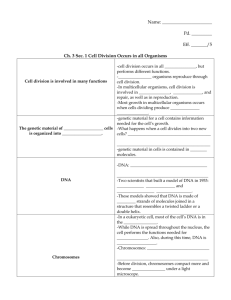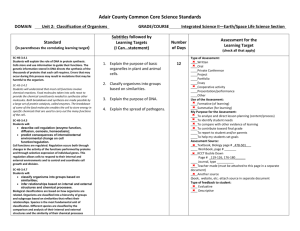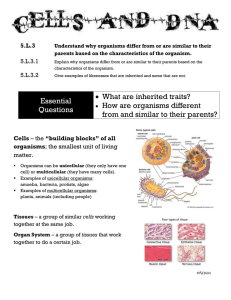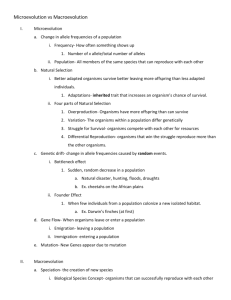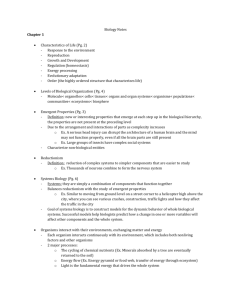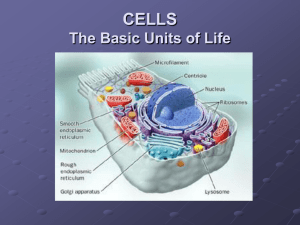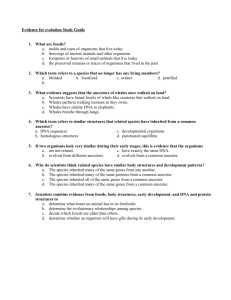1.3 Ten themes unify the study of life
advertisement
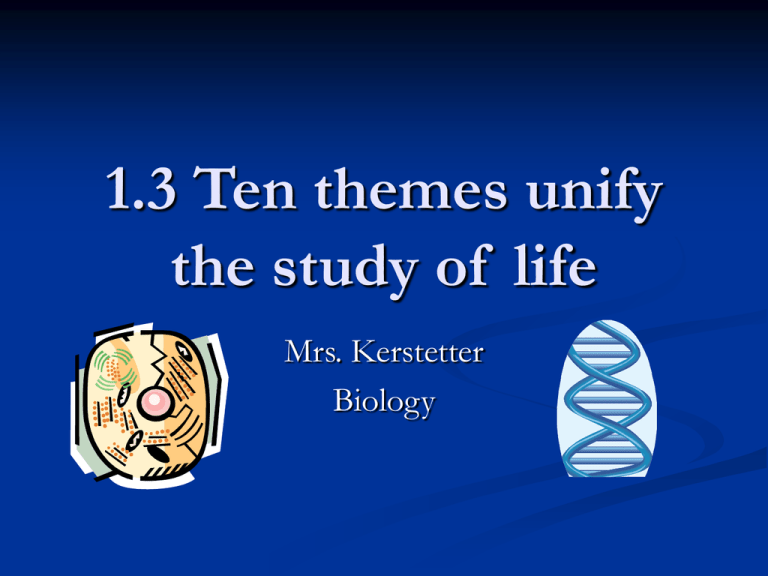
1.3 Ten themes unify the study of life Mrs. Kerstetter Biology Biological Systems System= a complex organization formed from a combination of smaller parts Has properties based on the arrangement and interaction of its parts Examples: Your body! Ecosystem Cellular Basis of Life All organisms are made of cells Most multicellular organisms have cells that are specialized for different functions What does specialized mean? Most multicellular organisms have higher levels of organization Interaction of cells determines development and survival Celltissueorgansystemorganism Form and Function How something works is related to its structure AKA “form fits function” What are some examples in nature where “form fits function?” Reproduction and Inheritance “Like begets like” Organisms reproduce their own kind Genes (units of genetic information) are responsible for family inheritance Genes are made of DNA Each cell contains copy of ALL DNA in your genome Inherited info in the form of DNA enables organisms to reproduce their own kind Interaction with the Environment Each organisms interacts continuously with its environment Imp in an ecosystem (of which we are a part!) Transfer of chemicals b/w organisms and the environments React to environmental stimuli Energy and Life Energy is needed in chemical form Carbohydrates, lipids, etc. Ecosystem Regulation Homeostasis= regulation of internal conditions Examples? Adaptation and Evolution Adaptation= an inherited trait that helps an organism’s ability to survive and reproduce Population= localized group of organisms of the same species Natural selection= individuals with beneficial variations may live longer and produce more offspring than those that don’t Evolution= generation-to-generation change in the proportion of different inherited genes in a population Biology and Society DNA Medicine Agriculture Pharmaceuticals Environmental issues Genetics Scientific Inquiry =asking questions about nature =using observations or experiments to to find possible answers
